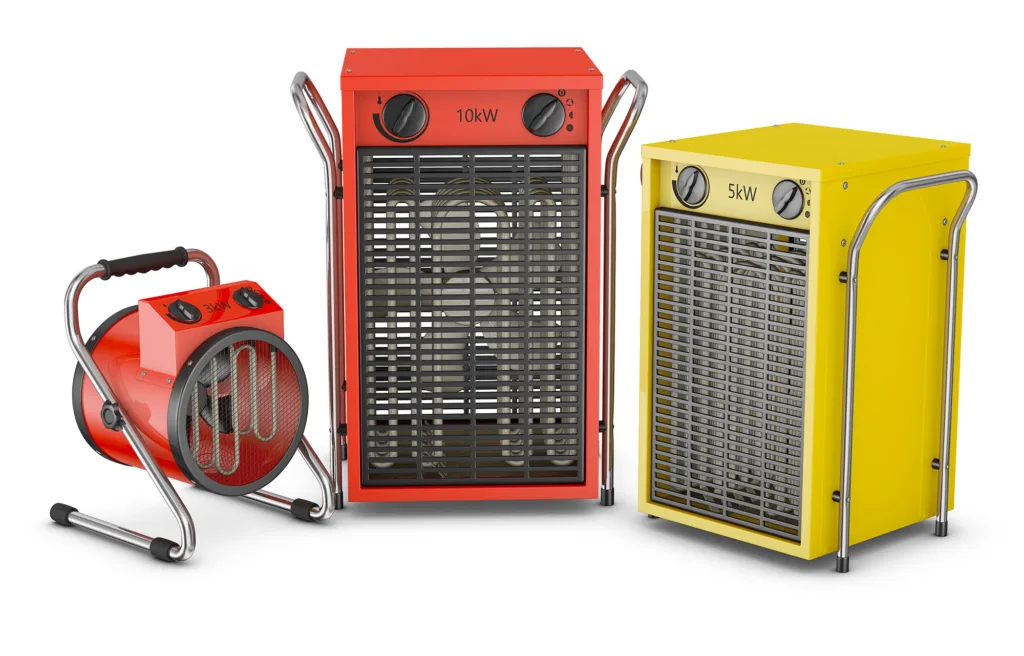Electric heaters in garages can be a transformative addition for many Cornwall homeowners. When the temperatures drop, these spaces can become almost unusable without proper heating. While garages are typically viewed as storage spaces, many people also use them for work or hobbies, making warmth essential. A dedicated electric heater, installed correctly, can provide much-needed comfort and even protect vehicles and stored items from cold-related damage.
In this guide, we’ll walk you through everything you need to know about selecting, installing, and maintaining an electric garage heater in Cornwall, while considering local climate factors and installation best practices. From insulation prep work to choosing a suitable heater model, this comprehensive guide covers all aspects to make your garage a warm and usable space all year round.
Why Electric Garage Heaters Are Ideal for Cornwall
Advantages of Electric Heaters
Electric heaters are popular for garages because they’re efficient, relatively easy to install, and don’t rely on fuel. Unlike gas heaters, they don’t emit exhaust fumes, making them a safer choice, particularly for enclosed spaces like garages. Furthermore, electric heaters are energy-efficient and can be controlled with precision, making them well-suited for Cornwall, where damp, chilly winters often necessitate heating solutions that work reliably and cleanly indoors.
Cornwall’s Climate
Cornwall experiences milder winters than much of the UK, yet the region still sees enough wet and cold weather to make garages unpleasant without heating. The high humidity can exacerbate the cold, making heating necessary to prevent dampness from damaging equipment and stored belongings. The added warmth from an electric heater can make a notable difference in both comfort and storage conditions.
Benefits of Heating a Garage
For those who work in their garages—whether for DIY projects, crafts, or even small businesses—consistent heating creates a productive and comfortable environment. Even if you’re not working in the garage, a warmer space helps protect items stored within, from vehicle batteries to equipment prone to moisture damage. A quality electric heater ensures you can use your garage comfortably, even during the coldest months.
Preparing Your Garage for Electric Heater Installation
Importance of Insulation
Before installing an electric heater, ensure your garage is well-insulated. Heat loss is common through uninsulated walls, floors, and doors, and an electric heater will be much less effective if warmth is constantly leaking out. Insulating garage walls, doors, and any windows can make a huge difference, helping the heater maintain a comfortable temperature without running constantly.
Sealing Cracks and Drafts
In addition to insulation, it’s essential to seal any cracks or drafts around doors and windows. Small gaps can significantly reduce heating efficiency. Silicone caulking works well for sealing windows and doors, while draught strips can be added to the bottoms of doors. If you’re integrating a thermostat with your heater, refer to our guide on wiring a thermostat for home heating, which provides practical steps to ensure efficient heating control.
Choosing the Right Electric Heater for Your Garage

Types of Electric Heaters
Several types of electric heaters work well in garages, each with its own strengths. Fan-forced heaters are common, as they quickly distribute warm air throughout the space. Ceiling-mounted heaters are another effective option, especially for larger garages, as they save floor space and spread warmth efficiently from above. Space heaters can also work in smaller garages but may not heat evenly if the space is larger or poorly insulated.
Calculating the Required BTU
Heating output is typically measured in British Thermal Units (BTUs). For garages, it’s essential to calculate the required BTU output to ensure adequate warmth. A good rule of thumb is to multiply the garage’s square footage by 10 to determine the minimum BTU output needed. For instance, a 300-square-foot garage would require a heater with at least 3,000 BTUs. This estimate can vary based on insulation, so consider investing in a slightly higher BTU output if your garage has minimal insulation.
Safety Features to Consider
Look for safety features such as automatic shut-off, overheat protection, and thermostatic control. Automatic shut-off prevents the heater from running indefinitely, and overheat protection ensures it powers down if it reaches an unsafe temperature. Thermostatic control lets you set a specific temperature, making it easier to maintain a comfortable level without wasting energy.
Installation Guidelines and Safety Tips
Electrical Requirements in the UK
In the UK, electrical installations must follow certain standards to ensure safety. Electric heaters, especially higher-wattage models, may require dedicated circuits. In some cases, adding a consumer unit (fuse box) upgrade may be necessary. Refer to government regulations, like those set out in UK Electrical Safety Standards to stay compliant.
Professional Installation vs. DIY
While some homeowners may feel comfortable installing a small electric heater themselves, hiring a qualified electrician can ensure that the installation is done safely and according to UK standards. Professional installers will handle the wiring, placement, and testing, ensuring optimal function and safety. If you need assistance, contact our team at Wave Electrical Solutions to arrange a professional installation in Cornwall.
Essential Safety Precautions
Proper placement of your heater is crucial. Avoid placing the heater near any flammable materials, such as fuel, wood, or fabric. Additionally, ensure that cords and wires are kept clear of walkways to prevent tripping hazards. Finally, if the heater includes a thermostat, make sure it is placed in a location where it can accurately measure the garage’s ambient temperature rather than near drafts or external doors.
Maintaining Your Electric Garage Heater for Longevity
Cleaning and Maintenance Tips
Like any appliance, electric heaters require regular maintenance to operate efficiently. Clean the heater’s vents to prevent dust buildup, which can reduce airflow and cause overheating. Check the power cord for signs of wear or damage, as frayed cords can be dangerous. Inspect any filters and replace them as necessary to maintain good airflow and heater performance.
Troubleshooting Common Issues
If your heater fails to reach the desired temperature or cycles on and off too frequently, check for issues like blocked vents or insufficient insulation. Other common issues include thermostat malfunctions or tripped circuits, both of which may need an electrician’s assessment. In case of any difficulties, don’t hesitate to seek advice from a professional.
FAQs
Q1. What type of electric heater is best for a small garage?
For a small garage, a portable space heater or fan-forced wall heater can be a good choice. These models are efficient for smaller spaces and can be easily positioned to cover the entire garage.
Q2. How much insulation is necessary for a garage in Cornwall?
Basic insulation of walls, windows, and doors is sufficient for moderate heating. However, adding ceiling and floor insulation can further improve efficiency, especially if you spend long hours in the garage.
Q3. Are electric garage heaters safe to leave on overnight?
While many electric heaters come with safety features, it’s generally advisable not to leave them unattended overnight. Automatic shut-off and thermostatic controls can increase safety, but staying cautious with unattended operation is recommended.
Conclusion
Electric garage heaters offer an efficient, convenient solution for keeping Cornwall garages warm through the winter months. By choosing a suitable heater and ensuring proper installation, you can turn a cold, unused garage into a comfortable workspace or storage area. Remember, professional installation can save you time and ensure safety compliance. For all your electrical needs, from installations to upgrades, reach out to Wave Electrical Solutions and let us help you transform your space for the winter season and beyond.










